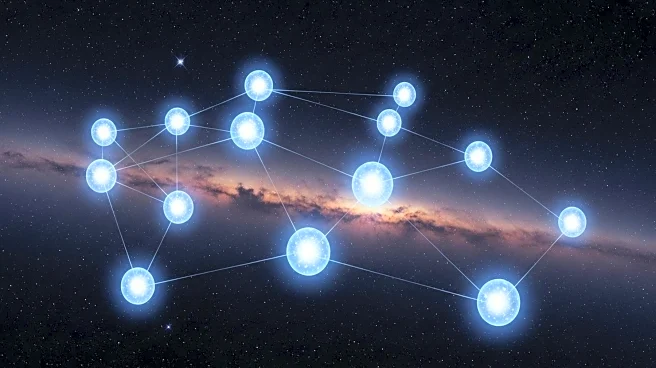What's Happening?
Astrolight, a Lithuanian company, is developing a secure communications network to address the rising instances of satellite interference. The company plans to deploy optical communications technologies, including optical ground stations and laser terminals for intersatellite links. Astrolight aims to create a robust system for commercial and government satellite operators, enhancing secure communications across Europe. The company has raised €2.8M in seed funding to support these projects and plans to deploy its first optical ground station in Greenland next year.
Why It's Important?
Astrolight's initiative to develop a secure communications network is crucial in the face of increasing satellite interference, particularly from Russian attempts to jam UK satellites. The company's focus on optical communications technologies offers a solution to the limitations of radio frequency links, providing higher data rates and spectrum availability. This development is significant for national security and commercial satellite operations, ensuring reliable and secure communications. The technology's dual-use capability allows integration with both military and commercial satellites, addressing the growing demand for secure communications.
What's Next?
Astrolight plans to continue developing its optical communications network, with the deployment of its first optical ground station in Greenland scheduled for next year. The company expects to demonstrate its first payloads for intersatellite links by 2027. As the demand for secure communications technology increases, Astrolight's network may expand globally, providing solutions to communication bottlenecks and interference issues. The company's progress will likely attract interest from government and commercial stakeholders, potentially leading to collaborations and further investments.
Beyond the Headlines
Astrolight's development of a secure communications network highlights the growing importance of optical technologies in addressing satellite interference. This advancement may influence regulatory policies and international agreements on satellite communications, as countries seek to protect their assets from interference. The technology's potential to enhance secure communications could also impact global security dynamics, as nations invest in counterspace capabilities to safeguard their interests.











